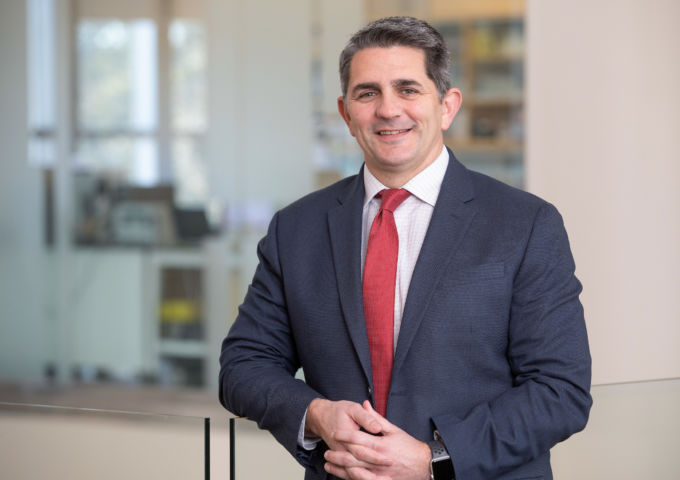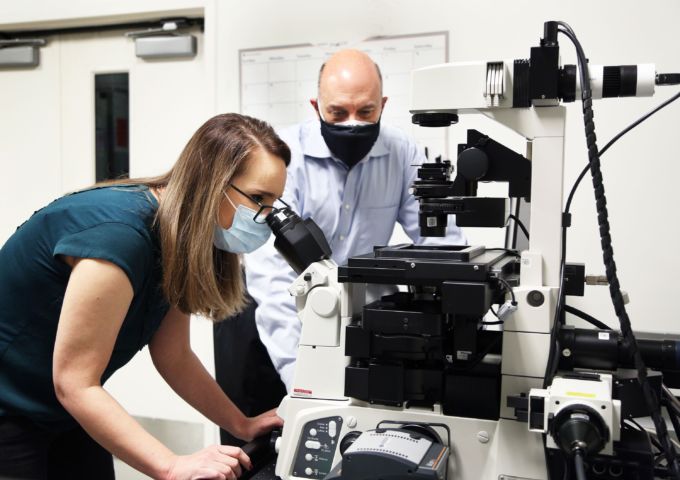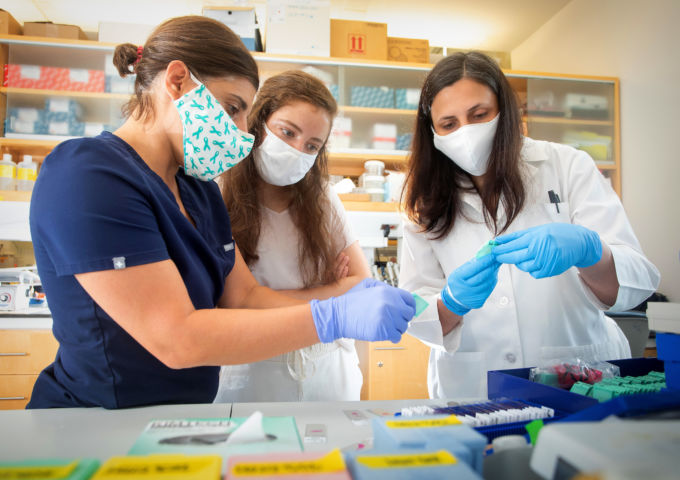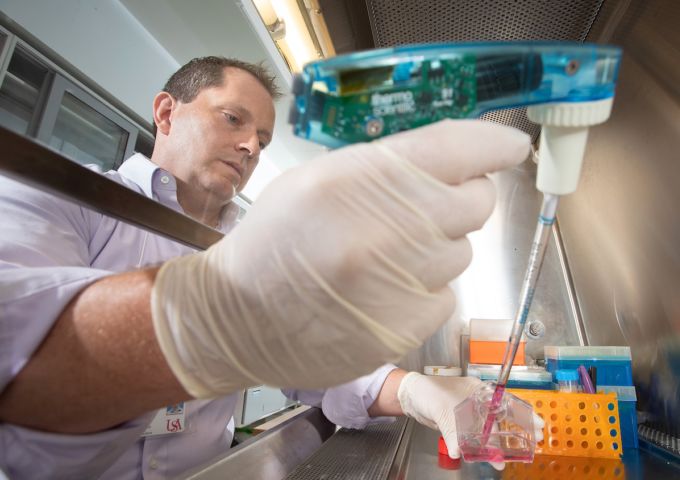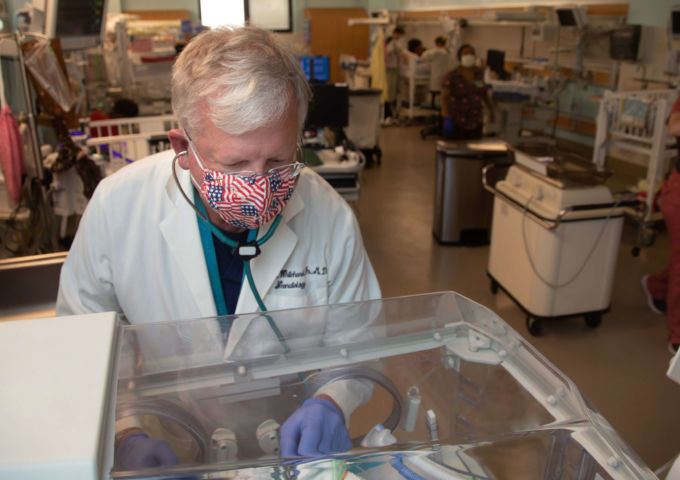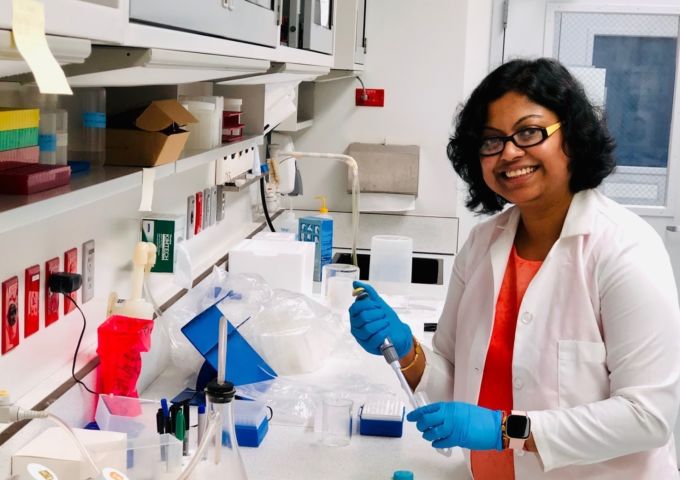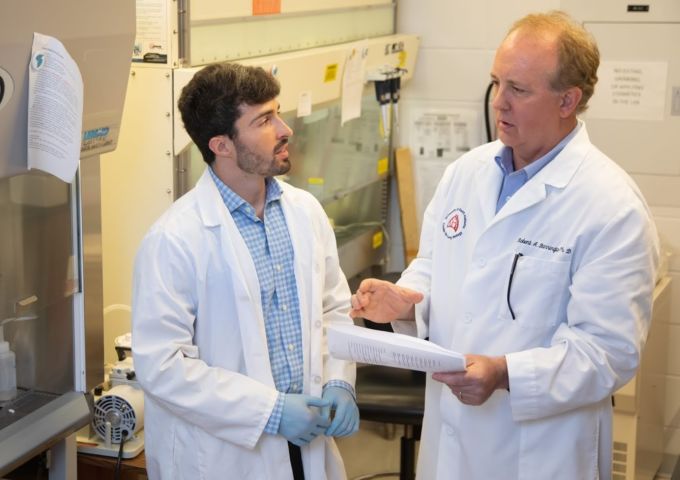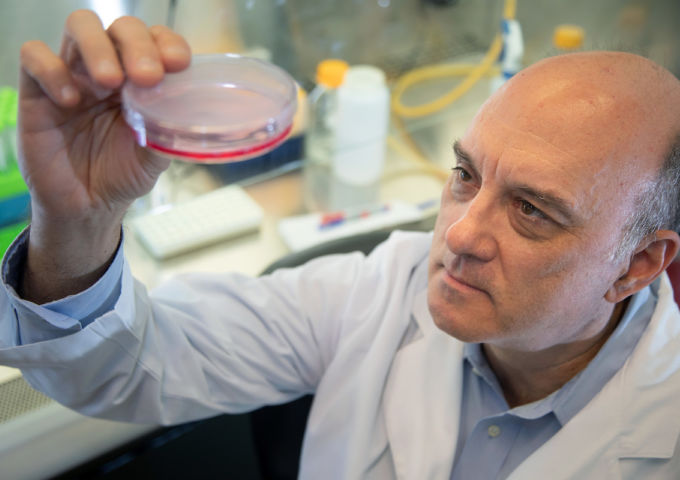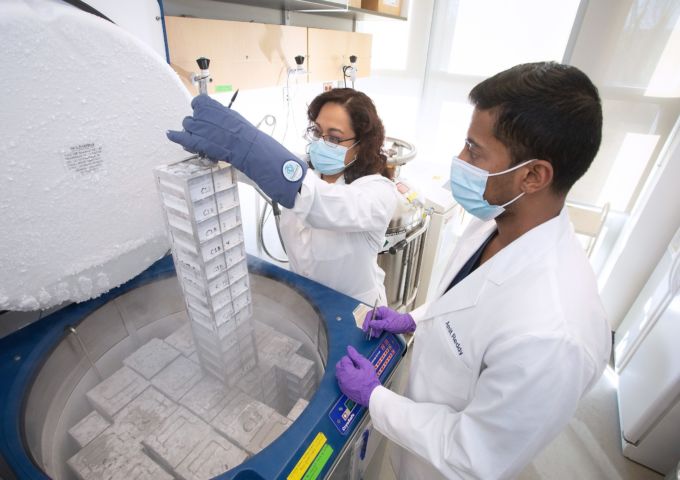
Located at the USA Health Mitchell Cancer Institute, the biobank provides complete histology services; collection, processing and storing of biospecimens; and DNA and RNA extraction for biospecimen quality control.

Nathan Cole always wanted to serve his fellow Marines. Now, as one of those rare individuals diagnosed with ALS in his 30s, he is taking on a new role to support them.
Stay up to date on the latest news from our providers, facilities and researchers at USA Health.
Located at the USA Health Mitchell Cancer Institute, the biobank provides complete histology services; collection, processing and storing of biospecimens; and DNA and RNA extraction for biospecimen quality control.
USA Health research demonstrating that a vaccine made from patients’ own tumors could extend the lives of women with late-stage ovarian cancer, particularly those without a BRCA gene mutation, has been published in the December 2020 issue of The Lancet Oncology.
MCI researchers are using their findings to better understand why some cancer treatment responses may be affected differently depending on the patient’s vitamin B3 dietary intake and how a cancerous tumor can grow and spread because of a patient’s metabolism.
The 13th annual GO Run will be held virtually Sept. 17-20 and is presented by the Catranis Family Charitable Foundation.
A recent discovery at the University of South Alabama College of Medicine shows there is a contributor in the body that helps fight viral infections.
Breakthrough technology is providing researchers at USA Health Mitchell Cancer Institute a more precise understanding of how cancer cells grow.
As the opioid crisis continues to impact communities across the world, a physician-scientist at USA Health has been named the principal investigator of an international phase II clinical trial to evaluate the safety of a drug for babies born with neonatal opioid withdrawal syndrome.
The Vigil vaccine is a genetically engineered vaccine made from cancer cells acquired from patients during surgery.
Research completed at the USA Health Mitchell Cancer Institute suggests that aggressive uterine cancer may respond better to immunotherapy than slower growing types.
Barnita Haldar, M.D., a fifth-year Ph.D. student in the University of South Alabama Basic Medical Sciences Graduate Program, recently published an article in the Journal of the Federation of American Societies for Experimental Biology.
University of South Alabama researchers recently received funding from local Lions Clubs that will be used to buy equipment for conducting high-quality vision research and training the next generation of vision scientists.
The article titled “Extracellular NAD+ enhances PARP-dependent DNA repair capacity independently of CD73 activity” outlines the importance of NAD+, also known as an “energy molecule.” NAD+ is essential for survival of every cell in the body, and plays an important role in cancer research and treatment efficacy.
